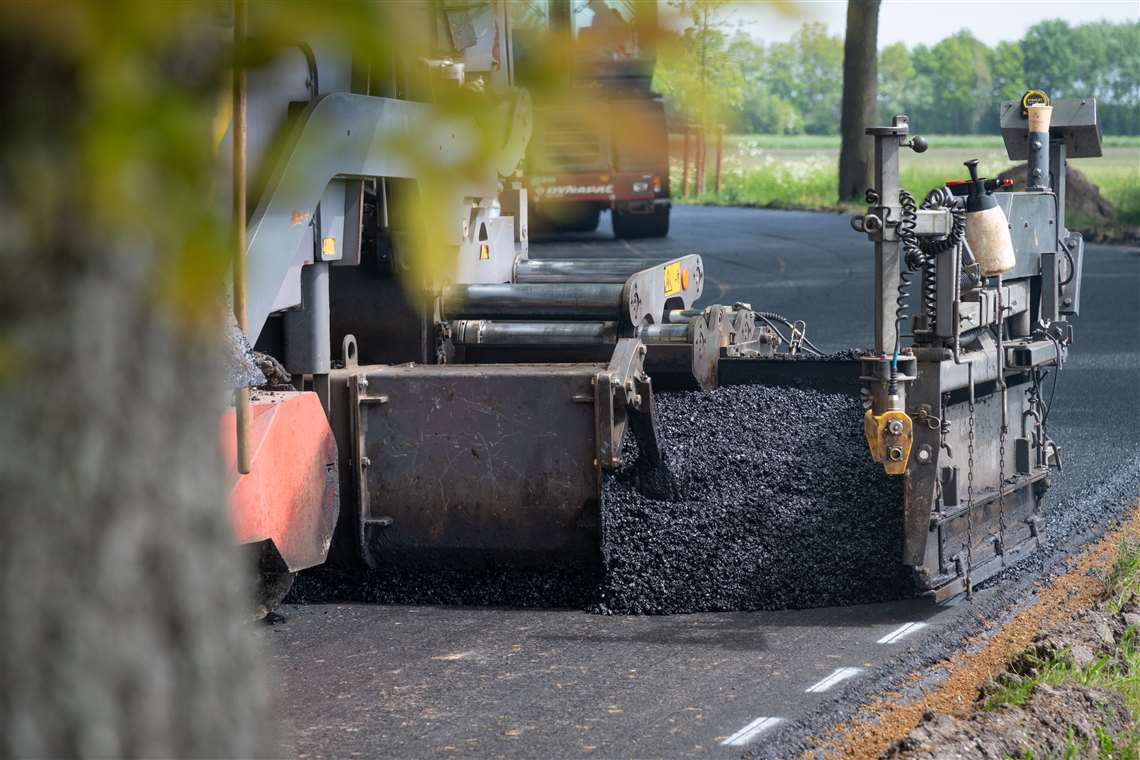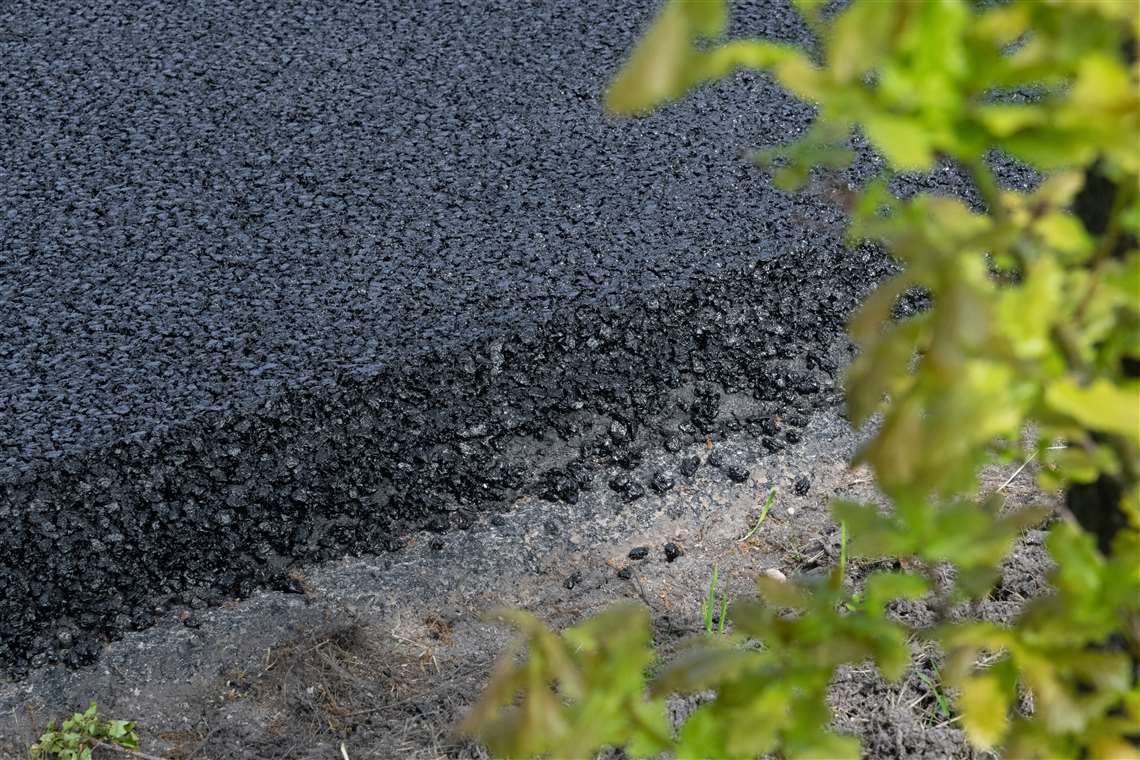Roelofs starts on ‘world’s first’ bio-asphalt road
04 June 2021
 The Roelofs team is using around 1,000kg of Avantium’s Dutch lignin as a substitute for the bitumen liquid binder traditionally used in asphalt.
The Roelofs team is using around 1,000kg of Avantium’s Dutch lignin as a substitute for the bitumen liquid binder traditionally used in asphalt.
Engineering contractor Roelofs has started work on a road section made of a bio-asphalt with a plant-based lignin binding agent, which is said to offer a “significant CO2 reduction” in road building.
The 250m-long stretch of road is being constructed in the north of the Netherlands, on the N987 between Siddeburen and Wagenborgen.
The top layer of asphalt will incorporate a new Dutch lignin product developed by Avantium – a specialist in the field of renewable chemistry.
Around 1,000kg of Avantium’s Dutch lignin will be used as a substitute for the bitumen liquid binder traditionally used in asphalt.
Gerard Hoiting, managing director at Roelofs, said, “As a company we have the ambition to be climate neutral in 2030. Not only internally, but also with clients and partners we look for innovations and concrete applications and inspire each other towards a better world. This collaboration is a great example of this.”
 While bitumen is a residue created from the distillation of crude oil, Avantium’s Dutch lignin is a plant-based material.
While bitumen is a residue created from the distillation of crude oil, Avantium’s Dutch lignin is a plant-based material.
Annelie Jongerius, senior scientist at Avantium responsible for the valorisation of lignin, said, “We are excited to showcase the potential of our lignin for the production of bio-asphalt. It is a great example of realising Avantium’s mission to replace fossil-based chemicals and materials with renewable alternatives.”
The road is a demonstration test for the CHAPLIN XL project, which aims to promote the use of lignin as a replacement for bitumen on large scale road building projects.
In addition to Avantium and Roelofs, the CHAPLIN XL project counts Utrecht University, Wageningen Food & Biobased Research, Asfalt Kennis Centrum, H4A Infratechniek and Stichting Biobased Delta among its supporting partners.
Avantium said, “The CHAPLIN XL partners will extensively analyse the lignin-based test road on performance, on techno-economic feasibility as well as on environmental benefits through a Life Cycle Assessment. Preliminary results indicate that lignin-based asphalt allows for a substantial reduction of the carbon footprint compared to its fossil-based counterpart.”
According to the company, those involved in CHAPLIN XL have already “improved the process to produce bio-asphalt at conventional asphalt plants, allowing for the scale-up of the lignin-based asphalt technology”.
What is lignin?
Lignin – or more specifically “Lignins” – is actually a category of organic polymers found naturally in the cell structure of most plants, including trees.
They are the major structural component responsible for binding plant cells together, and it is therefore possible to use lignins to make adhesives and surface coatings.
Around the world, large quantities of lignins are produced as a biproduct of wood material processing in commercial paper manufacturing.
The exposure of a lignin polymer to oxygen is what causes paper, particularly newspaper, to turn yellow in colour over time. The quality of paper is therefore determined by how much lignin is removed during the manufacturing process.
While bitumen is a residue created from the distillation of crude oil, Avantium’s Dutch lignin was manufactured at Asfalt Production Westerbroek’s facilities in Groningen.
Martin Junginger, a professor of Biobased Economy at Utrecht University and project coordinator of CHAPLIN XL, said, “For the wide application of lignin in road construction in the future, it is necessary for road constructors to be able to provide financial, technical and environmental validation of bio-asphalt in tenders.

“We also notice that there is high international interest from road constructors for our test results.”
Roelofs, which is planning to switch to using entirely bio-asphalt in the near future, is also due to construct a second test road on the N987 as part of the project.
For comparison purposes, the second road section will be made using an asphalt with a traditional Kraft lignin binding agent sourced from a paper manufacturer in Finland.
Also derived from plants, Kraft Lignin is a biproduct of paper manufacturing.
STAY CONNECTED



Receive the information you need when you need it through our world-leading magazines, newsletters and daily briefings.
CONNECT WITH THE TEAM








